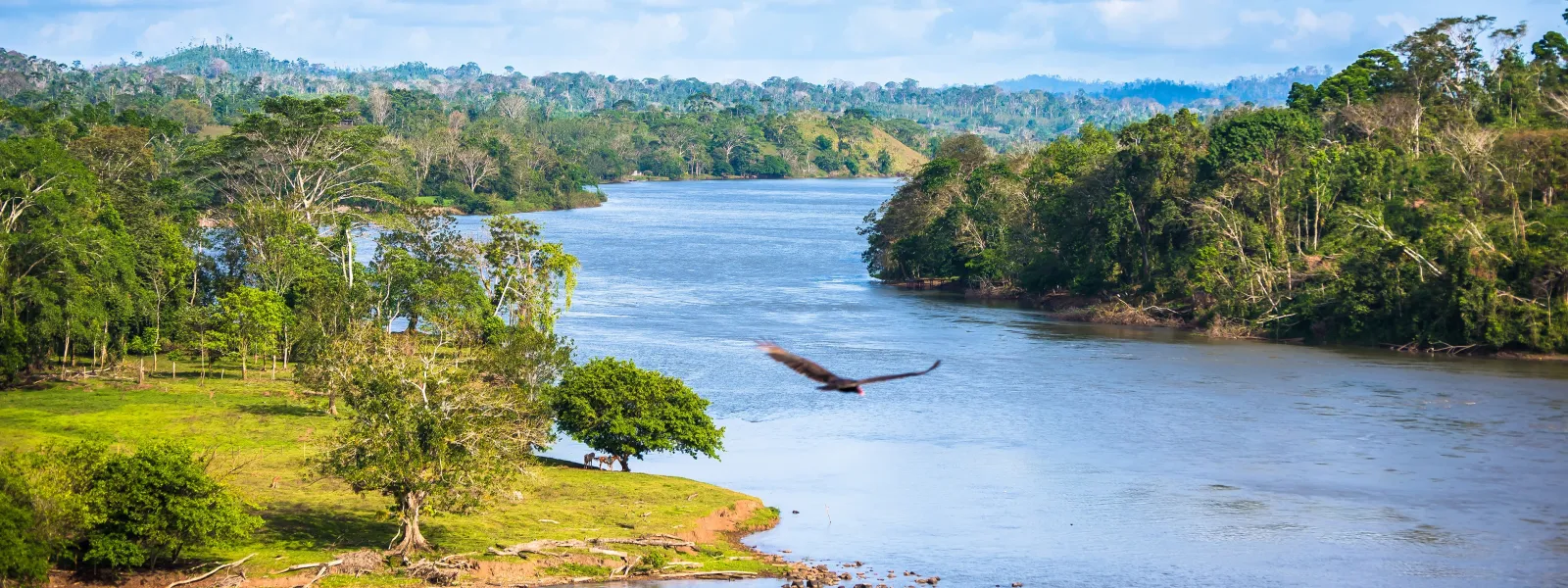
Communities in Nicaragua win Green Climate Fund withdrawal from project that violated their rights
Photo: Rio de Luz/Shutterstock.In an unprecedented decision resolving a complaint filed in 2021, the Green Climate Fund terminated a forestry project because the developers failed to comply with the Fund's policies and procedures on socio-environmental safeguards. This non-compliance violated the human rights of indigenous and Afro-descendant communities.
The Green Climate Fund, the world's leading multilateral climate finance institution, decided to terminate funding for a forest conservation project in Nicaragua because the developers failed to comply with the institution's policies and procedures on socio-environmental safeguards. The non-compliance violated the rights of indigenous and Afro-descendant communities, as the project threatened to exacerbate the situation of violence from which they were already suffering. The Fund had not made any disbursements for the project and project implementation had not yet begun.
The decision, the first of its kind in the Fund's history, is in response to a complaint filed in June 2021 by representatives of the affected communities, with the support of local and international organizations, with the Fund's Independent Redress Mechanism. The Independent Redress Mechanism hears complaints from people who are or may be affected by projects or programs financed by the Fund.
"This decision is a recognition of the tireless efforts of the communities behind the case, who were able to demonstrate the difficult situation they face, as well as a reminder of the importance of involving local communities in all stages of a project, from its conception," said Florencia Ortúzar, Senior Attorney at AIDA, one of the organizations that accompanied and provided legal support to the complaint process.
In the complaint, the communities argued that implementing the project— called Bio-CLIMA: Integrated Climate Action to Reduce Deforestation and Strengthen Resilience in the BOSAWAS and Río San Juan Biospheres— would have serious impacts because:
- There was no adequate disclosure of information, no indigenous consultation, and no free, prior, and informed consent.
- The project would cause environmental degradation and increase violence against indigenous communities due to land colonization.
- The conditions imposed by the Fund's Board of Directors for project approval (including independent monitoring of project implementation and ensuring the legitimate participation of indigenous peoples) were not met.
- There was a lack of confidence in the Central American Bank for Economic Integration, the entity accredited to channel the funds, as to its compliance with the Fund's policies.
- There was a lack of confidence in the ability of the Government of Nicaragua, as the implementing agency, to fulfill its obligations in the execution of the project.
The goal of the project, for which the Fund committed $64 million USD in 2020, was to restore degraded forest landscapes in Nicaragua's most biodiverse region (home to 80 percent of the country's forests and most of its indigenous peoples) and to channel investments toward sustainable land and forest management.
However, the project was designed without adequate consultation, with a complete lack of transparency on the part of the sponsoring bank and ignoring the difficult context of violence and lack of human rights protection still suffered by indigenous communities in Nicaragua, particularly in the project area.
In recent decades, the harsh local situation has only worsened because of organized crime, drug trafficking, the expansion of agriculture and cattle ranching, and the promotion of extractivist policies, as well as the lack of state protection.
The investigation launched by the Independent Reparations Mechanism, which included field work and face-to-face and virtual interviews with all stakeholders, confirmed some of the allegations made in the complaint, including the lack of adequate consultation processes and the lack of free, prior, and informed consent of the affected communities. This is stated in the investigation’s final report.
In July 2023, the Fund's Board of Directors, which was called upon to decide on the future of the project based on the Investigation Report, delegated the task to the Fund's Secretariat. As a result, neither the IRM nor the claimants had any further say in the matter.
Finally, on March 7 of this year, the Secretariat announced its decision: to terminate the project's financing agreement, acknowledging that the developers had failed to comply with the Fund's policies, as alleged by the communities in the complaint.
"The decision is a valuable lesson for the Green Climate Fund, whose policies and safeguards exist to prevent these unfortunate situations and must be applied rigorously and consistently from the conception of projects seeking funding," said Ortúzar.
Press contact
Víctor Quintanilla (Mexico), AIDA, [email protected], +52 5570522107
